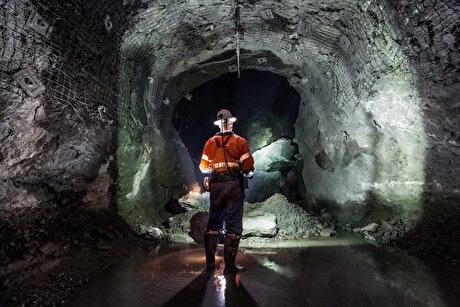
Austria Eyeing Further Trade Ties with Iran
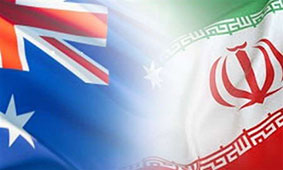

The Austrian diplomat made the remarks in his Monday meeting in Vienna with Iran’s Deputy Foreign Minister for Political Affairs Seyed Abbas Araqchi.
Peterlik hailed Iran’s policy to stay in the Joint Comprehensive Plan of Action (JCPOA).
He referred to Iran’s significance in the Austrian foreign policy as well as its status in West Asia and underlined his country’s political resolve to continue consultations and cooperation with Iran in various fields.
“Austria has always supported the JCPOA and considers it together with the EU as an international pact based on multilateralism,” he said.
The Austrian diplomat also voiced small and medium companies’ interest in cooperation with Iran.
Araqchi, for his part, thanked Austria for its positive and constructive stance for promoting collaboration with Iran and backing JCPOA and stressed the need for further practical support of the EU states to JCPOA.
He also commented on Iran’s stance vis-à-vis Syria, Yemen and Afghanistan, saying that Iran’s regional policy has always been based on cooperation in line with establishing stability and security, as Tehran will continue playing its constructive role in the regional developments.
Araqchi arrived in Vienna on Monday to take part in the fourth round of political negotiations between Iran and Austria.
Araqchi will also visit Slovakia and Bulgaria on the second and third legs of his European tour.
In another meeting in Vienna on Monday, Araqchi exchanged views with Director General of the International Atomic Energy Agency (IAEA) Yukiya Amano.
After meeting with the UN nuclear watchdog’s chief, Araqchi reiterated Tehran’s stance that it will remain committed to its 2015 nuclear agreement with world countries if the deal serves its interests.
“What matters to us is to make sure that staying in the accord is in the interest of our country,” he said.
“Iran will remain committed to the nuclear deal if the remaining signatories to the JCPOA abide by their commitments,” he noted, referring to the accord by the acronym of its official name, the Joint Comprehensive Plan of Action.
Araqchi also said that Tehran is willing to preserve the JCPOA despite the United States withdrawal from the deal and its restrictive measures against the Islamic Republic.
During the meeting, he consulted with Amano about the latest state of Tehran’s cooperation with the IAEA.
He said the Islamic Republic expected that the watchdog continues to act impartially and professionally, retaining its independence in the face of disruptive external pressure.
Amano, for his part, expressed satisfaction concerning the level of cooperation between his organization and Iran in the implementation of the nuclear deal, and hoped that the cooperation continues.
Separately, Araqchi voiced hope that the European Union, which coordinated the talks leading to the deal, heeds its “momentous historical” duty towards the accord, and restores the balance lost between the commitments and dividends associated with it “as soon as possible.” Otherwise, he said, there would be no reason for the Islamic Republic to keep honoring the agreement.
In a related front, earlier on Sunday, Head of the Atomic Energy Organization of Iran (AEOI) Ali Akbar Salehi said Europeans, as the main beneficiaries of the agreement with Iran, should speed up efforts to materialize the Special Purpose Vehicle (SPV), warning that Tehran’s patience is wearing thin.
Iran's nuclear chief urged Europe to take necessary measures to accelerate the implementation of SPV before it becomes too late.
Speaking in an interview with the Islamic Republic News Agency (IRNA), Salehi commented on the current situation of cooperation between Iran, the Europeans, Russia and China about Iran's nuclear deal known as the Joint Comprehensive Plan of Action (JCPOA) and said, “It is unfortunate to say that lately the developments have not been very encouraging.”
He said Europe should take this as a message.
He further expressed hope, “Before it is too late, Europeans, in particular, should fulfill what they have promised beforehand, otherwise I am afraid that the future developments will not be conducive neither for us nor for them or even for other participants of the JCPOA.”
SPV, also known as Special Purpose Vehicle, is a financial mechanism that the European Union has proposed to facilitate trade with Iran.
Elsewhere in the interview, Salehi went on to say that Iran does not want to see the deal disintegrated and breached by any of the present members.
He said though the US has already left the JCPOA, there are still other members who have stayed committed to the deal.
Salehi went on to reiterate in his interview that “Iran has been fulfilling its commitments regarding the deal and the 13 reports by the IAEA confirming the fact is a clear proof of this claim”.
“The International Atomic Energy Agency (IAEA) has confirmed this in its 13 consecutive reports, based on a robust verification system, proving that Iran is implementing its nuclear commitments. There is no credible peaceful alternative to the JCPOA,” the official added.
“The Europeans as the main beneficiary should think about the consequences of the decision, as Iran has so far fulfilled all its commitments under the JCPOA,” he said.
The top nuclear official noted that 'Iran’s patience is wearing thin and it is time for the EU to take its strategic decision. '
“But on the side of the Europeans, it's been months that they have promised us to come up with the SPV scheme which unfortunately has not yet been materialized,” Salehi added.
Iran's nuclear chief said, “I have heard in the recent news that hopefully by Monday they will probably announce the formation of the SPV.”
“I hope that they will take this step because this is an encouragement and will help keep the trust that we worked so hard to build between the two sides; otherwise, we will be losing the trust and once the trust is lost everybody will be a loser in the game.”
“So I say that this is a battle we should not lose,” he added.
“We should win this battle and we can only win it together. Otherwise, it will become a battle already lost and certainly this will not be in the interest of the Europeans specifically if we notice that they look at the JCPOA mainly from the perspective of security.”
In a related front, earlier on December 12, Salehi warned that his country enjoys the capability to restore 20-percent uranium enrichment if the 2015 nuclear deal is discarded by parties still remaining under the agreement.
He said that under the 2015 nuclear deal, Iran accepted to put confidence-building curbs on its nuclear program, but they do not obstruct the “peaceful activities of Iran’s nuclear industry”.
“Enrichment is currently underway, but we would put aside the 300kg limit (set by the nuclear agreement) whenever we wish, and would do the enrichment at any volume and level,” he said in an interview with state TV on the sidelines of a visit to the Fordo nuclear facility.
“We currently have 1,044 centrifuges in Fordo, and if the establishment wants, we will restart 20-percent uranium enrichment in Fordo,” he noted.
He expressed hope that the remaining parties to the nuclear agreement would deliver on their promise and implement their commitments in order to fill the gap created by the US after its unilateral withdrawal from deal, officially known as the Joint Comprehensive Plan of Action (JCPOA).
Otherwise, he said, Iran will have to reduce its JCPOA commitments.
“I would like to warn that this is not a bluff; I have kept my word whenever I’ve said something. Now I’m emphasizing once again that if the establishment wants, we can easily return to the 20-percent enrichment, and meet the country’s needs at any level and volume,” he noted.
In relevant remarks in November, Salehi said that the European Union’s failure in providing the needed ground for Tehran to enjoy the economic benefits of the nuclear deal would exhaust Iran's patience, asserting that resuming uranium enrichment to 20% purity is one of Tehran's options in that case.
"Iran could resume enriching uranium to 20 percent purity--seen as well above the level suitable for fueling civilian power plants--if it fails to see the economic benefit of the 2015 deal that curbed its nuclear program," said Salehi, in an interview with a Western news outlet before his meeting with EU Foreign Policy Chief Federica Mogherini in Brussels.
"If we cannot sell our oil and we don’t enjoy financial transactions, then I don’t think keeping the deal will benefit us anymore,” he highlighted, adding, "I will pass certainly a word of caution to her (Mogherini): I think the period of patience for our people is getting more limited and limited. We are running out of the assumed timeline, which was in terms of months.”
Europeans' honesty in dealing with the Iran nuclear deal is seriously doubted by Iranian masses that are discontent with talks with European counterparts.
In contrast with what European politicians and government are stating, many experts in Iran are suspicious of Europe's genuine commitment to the letters of the nuclear agreement of July 14, 2015, and are voicing their discontent with what they describe as Europe's strategy of killing time.
Even some commentators like Seyed Mostafa Khoshchashm are calling the Iranian government to start meaningful modifications in JCPOA undertakings, and specially remove the cap on the country's enriched uranium stockpile after the US unilateral withdrawal from the agreement; a call which is gaining momentum among the Iranians.


SAIL Bhilai Steel relies on Danieli proprietary technology to expand plate mill portfolio to higher steel grades

Alba Discloses its Financial Results for the Second Quarter and H1 of 2025
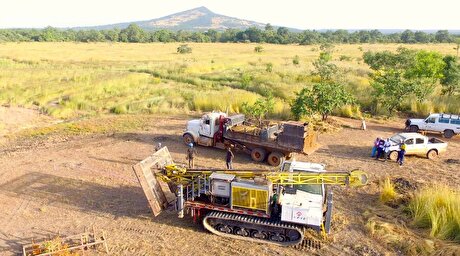
Fortuna rises on improved resource estimate for Senegal gold project

US slaps tariffs on 1-kg, 100-oz gold bars: Financial Times

Copper price slips as unwinding of tariff trade boosts LME stockpiles

Fresnillo lifts gold forecast on strong first-half surge

Why did copper escape US tariffs when aluminum did not?

Codelco seeks restart at Chilean copper mine after collapse

NextSource soars on Mitsubishi Chemical offtake deal

Hudbay snags $600M investment for Arizona copper project
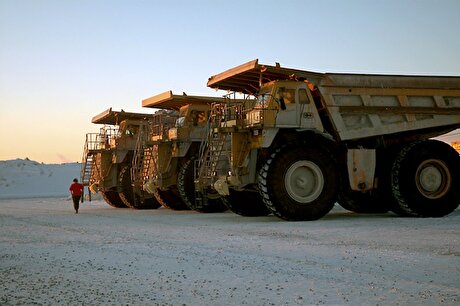
Discovery Silver hits new high on first quarterly results as producer
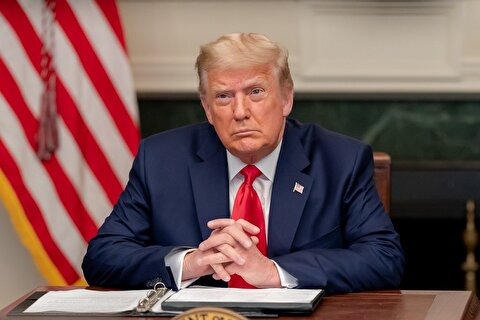
Trump says gold imports won’t be tariffed in reprieve for market

AI data centers to worsen copper shortage – BNEF

Uzbek gold miner said to eye $20 billion value in dual listing

Peabody–Anglo $3.8B coal deal on the brink after mine fire

De Beers strikes first kimberlite field in 30 years

Minera Alamos buys Equinox’s Nevada assets for $115M
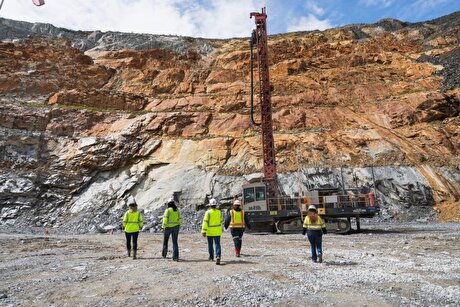
OceanaGold hits new high on strong Q2 results
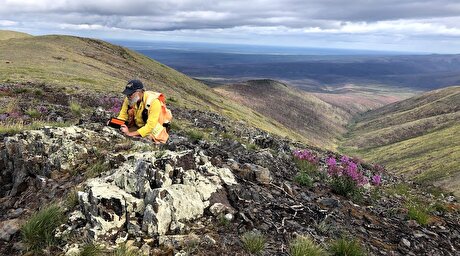
What’s next for the USGS critical mineral list

Hudbay snags $600M investment for Arizona copper project

Discovery Silver hits new high on first quarterly results as producer

Trump says gold imports won’t be tariffed in reprieve for market

AI data centers to worsen copper shortage – BNEF

Peabody–Anglo $3.8B coal deal on the brink after mine fire

De Beers strikes first kimberlite field in 30 years

Minera Alamos buys Equinox’s Nevada assets for $115M

OceanaGold hits new high on strong Q2 results

South Africa looks to join international diamond marketing push
